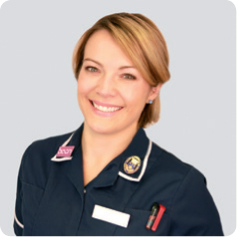
 Imagery posted on platforms such as social media should be considered carefully as they should not promote a sense of over-sexualisation or unprofessionalism
Imagery posted on platforms such as social media should be considered carefully as they should not promote a sense of over-sexualisation or unprofessionalism
It is well-documented that nursing has been stereotyped throughout history—the representation of the ‘nurse’ within media depictions has been, and still is, an issue of increasingly great concern. The way in which nurses are portrayed is believed to have implications in general for the status of nursing in society. Moreover, it contributes to the old doctrine of how nurses are seen as assistants to doctors. This so called ‘handmaiden’ stereotype infects the real healthcare workplace, and there is still some thinking that those in the medical profession enjoy a greater social and economic power, and many of them still see nurses as subordinate. Some would agree that times have certainly changed, but we are not there yet and may not be for some time.
In the current age of digital social media platforms, the body and face play a crucial role in ‘influencers’ selfies, therefore conforming to rigid standards of attractiveness and femininity is fundamental to their gaining attention. This has broader cultural effects in shaping attitudes about body image, which research has proven to be psychologically damaging to our society. One of the easiest ways for women to gain attention on social media is through a highly sexualised aesthetic that increasingly borrows a ‘look’ associated with mainstream, pornographic imagery.
Over-sexualised imagery in social media
This brings me to the main issue that I firmly believe needs addressing, in that there is a growing concern in the aesthetic industry about the increase of over-sexualised and provocative images that some aesthetic practitioners are using to present themselves and their services to their clients on social media—mainly to promote and market their business or a certain brand of product. Undoubtedly, this is unprofessional and does not come from a feminist perspective or the belief that one should not an express a human right but, ultimately, we are qualified nurses who are accountable to the Nursing and Midwifery Council (NMC), a body that exists to protect the public. We have a duty to create a professional and caring environment for our patients, regardless of the discipline we work in—cosmetic medicine is no different and should not be glamorised in anyway, particularly by the qualified professionals who should be setting an example to the public, the service users and their peers. Furthermore, this is damaging to the reputation and professionalism of practitioners and, more widely, could impact females generally by feeding into and contributing to the negative body image issues that are linked with the use of social media. The chief executive of the NMC said nurses who put photographs of themselves ‘not wearing very much’ (Sawer, 2015) on internet sites risked harming the reputation of the profession. Additionally, the NMC's code on professional standards of practice and behaviour for nurses, midwives and nursing associates outlines what good practice looks like. Paragraph 20.10 of the code clearly states: ‘Use all forms of spoken, written and digital communication (including social media and networking sites) responsibly.’ (NMC, 2019)
» We are trying to move away from the prejudice that has seen nurses in an oversexualised way «
Professionalism and regulatory bodies
The message is clear, those professionals who are accountable to a regulatory body should think carefully before they post images that may promote unprofessionalism and over-sexualisation. We cannot concern ourselves with those who are administering non-surgical treatments who are not qualified professionals, as the public has to decide what is right and what is wrong in this regard.
Safety for nurses in the workplace
The important point is, we are trying to move away from the prejudice that has seen nurses in an oversexualised way. Additionally, from a safety perspective, the enduring sexualisation of nurses must end to assist in keeping them safe from potential harassment in the workplace (Mitchell, 2019).
Practise what you preach
Finally, it must be remembered that the job of the aesthetic nurse is to reduce appearance-related anxiety, yet the more we promote inappropriate posts, the more we potentially contribute to it. Practitioners treat their patients so they can look and feel their best, so they can feel confident and empowered. We must ensure we do not contribute to the high level of pressure women (and men) already feel to look and behave in a certain way.
Let's stop feeding into the stereotype that we long to come away from.



